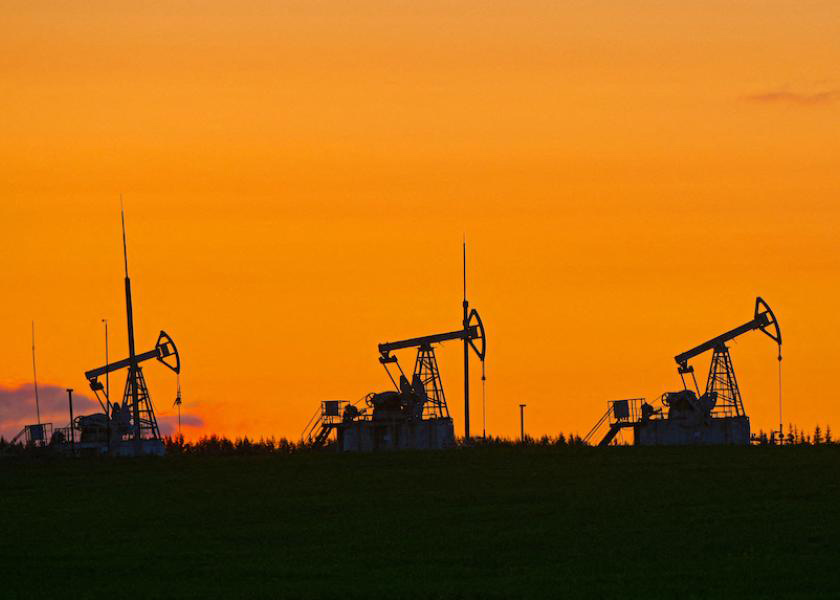|

By Pro
Farmer Editors
October 25, 2023
IEA Declares Fossil Fuels No Longer ‘Safe or Secure’

Oil (Farm Journal)
The International Energy Agency (IEA) predicts a nearly 50% decline in
oil demand by 2050 if governments fulfill their commitments to
transition to cleaner energy sources. This comes with a warning that
investments in oil and gas are no longer secure. Fatih Birol, the head
of IEA, pointed to recent events like Russia’s invasion of Ukraine,
Middle East tensions and record-breaking temperatures as evidence of
the risks associated with continued reliance on fossil fuels.
Birol has persistently called for an end to new oil and gas
investments, despite resistance from many industry players, including
energy executives in the United States and OPEC. He stated that oil
and gas cannot be considered safe or secure energy choices for
countries and consumers worldwide.
IEA’s report highlighted the evolving risks of over-investment in
fossil fuels as governments seek to enhance energy security in the
wake of the Ukraine conflict. Although there will be a surge in
liquefied natural gas (LNG) projects from 2025, the risk of
over-investment means that concerns about underinvestment in oil and
gas supply are no longer valid.
IEA’s 2023 report projects peak demand for global oil, natural gas and
coal before 2030, with oil demand expected to drop to 92.5 million
barrels per day by 2030 and 54.8 million barrels per day by 2050 if
government pledges are met. However, if governments fail to follow
through on their commitments and maintain existing policies, oil
demand is projected to only slightly decline to 97.4 million barrels
per day by 2050.
OPEC, on the other hand, predicts an increase in oil demand to 116
million barrels per day by 2045, highlighting a significant
discrepancy between producer forecasts and those of IEA.
In IEA’s scenario where government pledges are met, unabated fossil
fuels are expected to account for only 32% of global energy supply in
2050, compared to 80% in 2022. Renewable energy sources, biomass,
nuclear and carbon-captured coal and gas generation would make up 66%
of global energy generation.
While progress has been made in clean energy investments, IEA
emphasizes the need for more ambitious government policies to limit
global warming to the critical threshold of 1.5 degrees Celsius, as
outlined in the 2015 Paris Agreement. IEA warns that global emissions
are still on track to raise global average temperatures by
approximately 2.4 degrees Celsius this century, leading to severe
climate change impacts.
In the most ambitious
“net-zero” scenario proposed by IEA, unabated fossil fuels would only
represent 12% of global energy demand by 2050. Birol also highlighted
the challenge of fragmentation, citing conflicts involving Ukraine and
Israel.
Get Pro Farmer's market
analysis and insights that aren't available online. Start
a 1-month trial subscription.
Green Play Ammonia™, Yielder® NFuel Energy.
Spokane, Washington. 99212
509 995 1879 Cell, Pacific Time Zone.
General office: 509-254 6854
4501 East Trent Ave.
Spokane, WA 99212
|